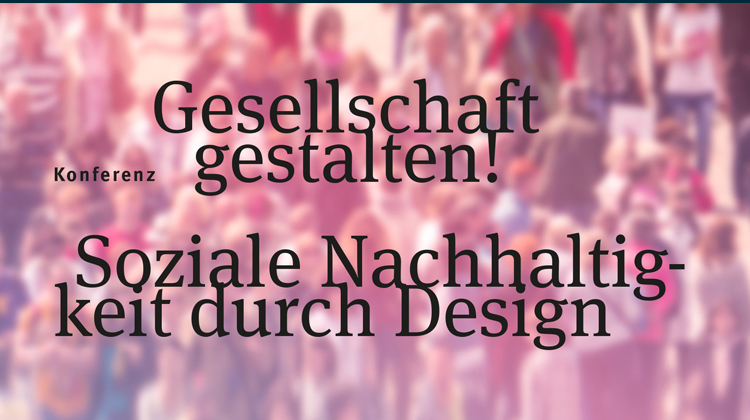Shaping society! Social sustainability through design (for all)
An event for everyone who wants to deal with or discuss issues of social sustainability.
The conference “Shaping Society! Social Sustainability through Design” focuses on hitherto neglected contexts of social sustainability and spans a wide range of topics such as anti-racism and decolonisation, gender justice and inclusion. All lectures are based on the question “Where does the German design industry stand in processes of social sustainability today?
Mathias Knigge will report on how the approach “Design for All” reaches diverse target groups with and without disabilities and how, instead of deficit-oriented special solutions, attractive added values are created for many people.
The lecture will present examples from the work of the grauwert office and its involvement in the Design for All – Germany e.V. competence network.
Background to the conference
Only when ecological, economic and social measures intertwine simultaneously and on an equal footing are the prerequisites for all-encompassing social sustainability fulfilled. In the “Agenda 2030” formulated by the UN, further decisive universal principles calling for a just and sustainable life are differentiated. Sustainable development of all these closely interconnected aspects is indispensable for a sustainable society.
Initial design processes are applied in almost all areas – designers are given a decisive task and influence in shaping a sustainable world of the future. The services and products they develop decisively determine how we organise our lives and perceive our environment, in what way we participate in it and whether we have equal access. If those affected are not involved and certain needs are neglected in the planning, this can exclude entire user groups, or if problematic symbols or emblems are used without reflection, prejudices and discrimination are perpetuated.
While economics and ecology are often at the centre of discussions about a sustainable future, the social factor, including diversity, access and inclusion, equal opportunities and cultural development, is quickly pushed into the background. Yet social sustainability can only succeed if it is considered from the beginning of the design process – for a respectful and appreciative coexistence in which every person belongs, in which appearance, language, physical or cognitive conditions, cultural origin or gender play no role.
